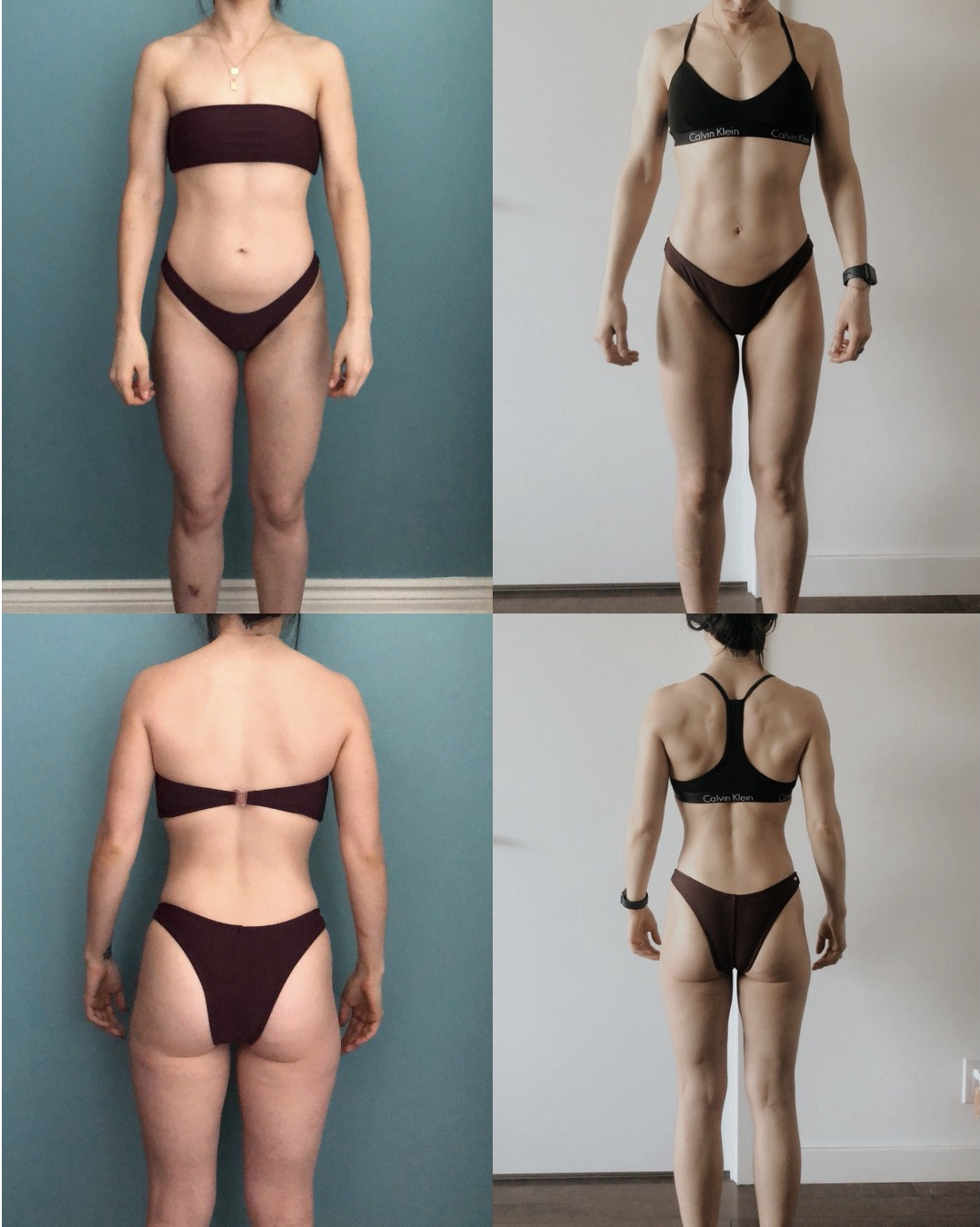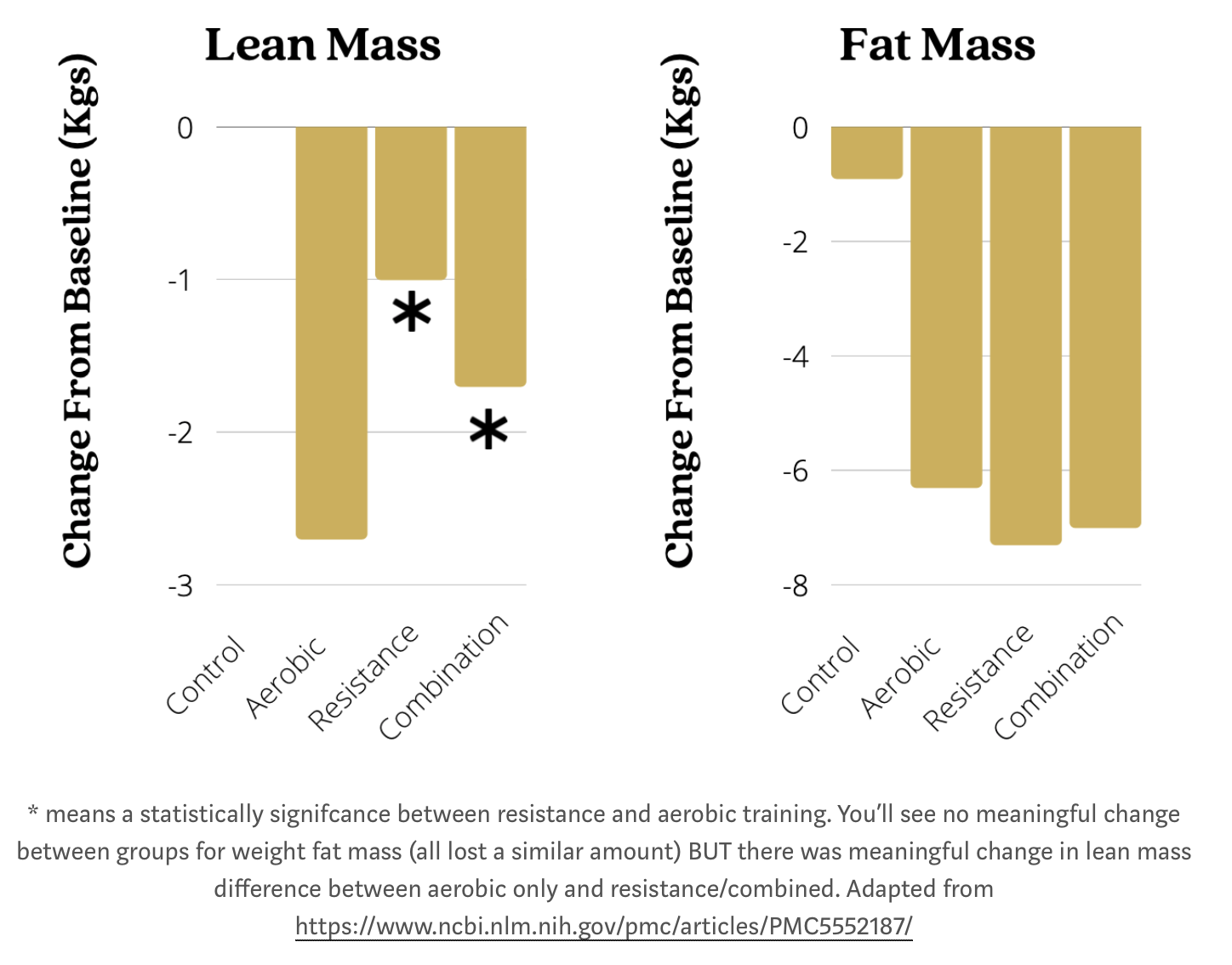Will Lifting Weights Make You Bulky?
In fact, the opposite is often true.
The age old question I’ve had to answer from the majority of my female clients over the years. As well as from some males I’ve trained, who were particularly attached to their fancy bespoke suits. Which I do understand when considering societal pressures to look a certain way or the price tag that comes with one of those suits I was talking about.
People often feel pressure to fit into the box of what they should look like. So if any training modality may affect that, the concern does make sense.
Unfortunately, from what I’ve gathered from my years of experience coaching people, there is a pervasive myth that still permeates throughout the fitness world. One that states that lifting weights will make them bulky.
In all honesty, I wish that were the case. I’ve been lifting for over a decade and I still wish I was more jacked. The meathead in me wishes that getting huge were as simple as just lifting weights.
Now, anecdotes are only so valid, as we all have them and they are clouded by our bias and the general shakiness of human memory. So I prefer to deflect to the actual evidence and some basic concepts of human physiology.
So let’s start here with some very basic fundamentals:
What does bulky actually mean?
Merriam-Webster defines “bulky” as “having bulk”, “large of it’s kind” or “having a great volume in proportion to weight”. If we work off the definition, there is a gaping hole from the get-go.
We have all heard that muscle weighs more than fat. Which literally makes no sense without some additional context. One pound of muscle weighs the same as one pound of fat. They both weigh one pound (duhh). What this phrase actually means is that one pound of muscle takes up less space than one pound of fat. Muscle tissue is simply more dense than adipose tissue (fat). In fact, with this definition in mind, gaining 5 pounds of muscle would theoretically make you less “bulky” than if you gained 5 pounds of fat.
Coach Sam weighs the same in both photos here. These are two years apart. In the first picture she has less muscle and more body fat. In the second, she has more muscle and less body fat. Something we call body recomposition (we’ll get to that later). Surely doesn’t look like lifting made her more “bulky.”
Still not sold? That’s fine. I am fully aware that I am a young male who’s biased towards lifting weights, that is trying to convince women in particular to overcome a potential fear of lifting weights that has been bombarded into their psyche with repetition, over decades from environmental and societal influences — with a blog post. So yeah, I don’t expect to transform minds, but I will seek to inform you better so you can make a more evidence informed decisions. Rather than listening to someone with zero evidence, but endless dogmatic hubris surrounding fitness.
Body Recomposition
There is a way that this myth is completely wrong and even spouting the opposite truth. In what is called body recomposition. Body recomposition is when you gain muscle mass and lose body fat at the same time. Hence your weight may not change too much (or at all), but the composition of your body weight will be altered. Your total weight may be pretty neutral, while your body fat % could change significantly.
This is something we see more in beginners, but it also can be done in more advanced lifters. Just typically to lesser degree. Let’s take a look at one resistance training study on untrained women (meaning they did not lift prior). After 20 weeks of starting strength training, both groups of women who were lifting remained weight stable. In fact, their body weights trended downward, but not to a meaningful degree. Yet, when muscle cross sectional area tests were taken on the subject’s quadriceps muscles, there were an 8.7 and 14.8 % increase in respective groups. Showing muscle mass increasing but weight remaining stable to trending slightly down. They weighed around the same, but actually had more muscle. This would indicate they would probably be less bulky in fact, when you consider that muscle takes up less space per pound than fat does.
This was only one study and looked at untrained women, so yes — not that surprising. There is some evidence of this also being the case in some more advanced trainees too. This paper looked at the results of 12 studies on more trained athletes. Male and Female athletes (this matters because a lot of studies tend to more done on males). All 12 studies did show *significant* results of increasing fat free mass and reducing fat mass at the same time. What we refer to as “body recomposition.” It is important to distinguish that some of these studies were even on on physique athletes (men & women). So it really may be overstated that only beginners can experience body recomposition, as this was not that case in this analysis.
Significant can be a confusing word here. It actually means statistically significant. The results were actually quite small. In the 1.8kgs of lean muscle gained with around 1.0 kg of body fat loss range. Statiscially significant just means these results were very unlikely a result of random chance. Some of these are very impressive considering the context of it being in more trained lifters though.
Why Is This Relevant?
Well because it shows some tangible evidence opposing the idea that “lifting make you bulky.” In fact, it shows there is potential for the opposite. If you start lifting, dropping body fat and building muscle, you may actually become less bulky. Ironically, an intervention like this is what most people want when they refer to a desire to be “toned.”
See, you need to gain muscle in order for it to be “toned.” If you just crash diet, don’t lift and do excessive cardio, you most likely won’t achieve that “toned” look. As lifting weights is pivotal in preserving muscle while losing fat. As we see above, you can even build muscle while losing fat. While if you don’t resistance train at all and crash diet, you’re more likely to lose more lean body mass (muscle) as you lose weight than if you were to lift.
In fact, one study on obese and older adults controlled for dietary intervention but compared aerobic training with resistance training and a combo of both once again demonstrated this. This adds another population here. Now we have untrained, trained, women, men and older folks all benefiting from lifting weights while losing body fat — considering more muscle was spared and even built during the fat loss periods.
Over 6 months of intervention, all three intervention groups lost a similar amount of weight. One main difference, was that the resistance training group and the combination of resistance training and aerobic training both maintained significantly more lean mass than the aerobic only group. This was also in an older population, which means you can expect less muscle gain if you were to compare them to a younger population.
A Key Component Of Adding “Bulk”
One reason I mentioned that study above, is because it had a key interventional component: Energy balance.
The idea of adding mass to your frame will always be beholden to the princple of energy balance. As your body cannot gain total body mass without being in a positive energy balance. Your body can use energy from stored adipose (fat) if you don’t have enough calories coming though. So in the context of building muscle while losing fat, your body can breakdown stored energy and use that energy to aid in the muscle building process. Having higher amounts of body fat does makes this more likely. The net result though, is not an increase of mass. This would defy the laws of physics. As gaining net mass can only come from an excess of energy intake. This is a recomposition of mass. Similar to moving money around to different accounts. It doesn’t increase your networth. Only making more money while spending less than what you’ve made will. To gain total body mass, you will need to be in a positive energy balance over a period of time.
If you’re in a negative energy balance, lifting weights literally cannot increase your body size or add “bulk”. You can build muscle, but you cannot increase your overall body mass over a period of time. I say that last part because of course you can gain mass in the short term, just drink one glass of water and step on the scale (the weight of the water ingested will increase your weight in the immediate sense). This is not body mass gain from tissue adaptations though — such as gaining/losing body fat or muscle.
This is where people get confused. I have had clients ask “will training like this make me bulky?” while they’re actively losing weight, in a caloric deficit. To which my answer is “add bulk with what energy?” In this context the weight training will only help maintain or even build a slight amount of muscle while you lose fat. Which is important for health and for aesthetic purposes. There truly is no downside to maintaining muscle mass while losing fat from what I can gather.
If you were to add “bulk”, you would need to be in a caloric surplus to do so. As we’ve also touched on, if you were gaining weight and didn’t want to be “bulky”, you’d probably be best off to actually try to make as much of that weight gain be muscle. You may remember, muscle is more dense than body fat. If you gained 10lbs of fat vs 5lbs of fat + 5 lbs of muscle, the latter would leave you less “bulky.” This is how unfounded this myth is.
I say this as a reminder, that unless you are currently eating in a positive energy balance, you won’t be able to gain total body mass. I know I am being repetitive here. It’s from years of relaying this same message to my clients. So if you get the message already, I apologize for my repetitiveness while warning you, you’ll probably hear it again.
Reality Check
Gaining a significant amount of muscle is fucking hard. It’s easier for some, but in general, it’s not easy. It requires training consisently over YEARS. Not to mention in order to continue to progress, you will need to train in a way that involves progressive overload. Which in simple terms, means gradually increasing the stress on your muscular and nervous system. Why would your body adapt to an environment that it doesn’t have to? It wouldn’t. Bringing in the imporatance of progressive overload. Then remembering the stronger you get, the harder you’ll have to train to still achieve progressive overload. Then to continue to get bigger and bigger, your nutrition will need to support that.
Making this myth not only false, but a bit arrogant (not intentionally of course). It works under the assumption that building muscle is so easy that if you lift weights, you’ll accidentally get too jacked. Which isn’t the case. Perhaps ever. This is something to reflect on when feeling fears based on this myth.
Ask yourself this:
“Have I been training fucking hard with heavy ass weights for years? Have I also been doing so while eating in a caloric surplus with a focus on high protein intakes?”
The answer for me to that question is yes, at least for the last year. Yet, I’m still not just packing on muscle. In fact, I’d be through the roof if I gained 10lbs of pounds of muscle over this entire year. Thats being a young male, with a love for lifting and eating a LOT of food. So if you’re a middle aged women, who trains a couple times a week and is actively losing weight, you have nothing to worry about in the realm of “getting too bulky.” I promise you.
How Should You Train For Fat Loss?
In general, for my fat loss clients, we prioritize strength training. You don’t have to, but for most situations I would reccomned that approach. Personal preference and goals do matter here though. If for some reason, you actually want to lose muscle, then this may not be the best strategy. I would just be very curious to your “why” there. If the reason was founded in some sort of myth like thinking you’ll be “bulky”, I hope I have challenged that narrative sufficiently. Or if you actually fucking loathe any resistance training, you also aren’t doomed. You can obviously lose weight without it. I’m talking from a place of optimization here.
If you want to lose body fat, I’d reccommend prioritizing resistance training. If you want to be “toned”, I’d also priortize it. If you want to be lean and strong, then once again, I’d prioritize it. Most situations I come across with clients, do warrant some sort of prioritizing of resistance training.
Once you’ve nailed down your workout routine, then you should address energy balance and general activity.
As mentioned before, resistance training is awesome, but it most likely won’t make you lose fat on it’s own. Some sort of dietary intervention is suggested here. Whether you track calories, practice portion control skills or implement boundaries around food to reduce intake is up to you and whoever’s helping you. What I will suggest though, is making sure it’s a sustainable approach. If it’s a crash diet where you’re left ravenous, you’re setting yourself up for failure. Making sustainability a key factor into picking any sort of dietary intervention.
Once you feel like you have a training program and a sustainable dietary intervention, the next simplest strategy is to find any way to increase overall light activity. Steps are commonly brought up here. Steps aren’t everything but they are measureable and easy to focus on adding in via walking. The reason this is so important, is because non-exercise activity tends to be the second largest contributor to overall energy expenditure and is also highly variable. Meaning when you diet, your NEAT levels may drop subconsciously. This would reduce your overall daily expenditure. This combative strategy can look like walking to work more. Intentionally taking the stairs. Setting a step target to hit everyday. Or even just taking up a lightly active hobby such as gardening. Yeah, you read that right. I just said gardening can be a useful weight management tool and I stand by it. The point is, nothing too extreme. Just small habits to keep activity from dropping too much.
There you have it, a simple guide to fat loss training. This is obviously generalized and non-specific, but will be effective for a lot of people, especially for beginners. A plan like this focuses on the big rocks with sustainable solutions.
With the intent to:
-Drop body fat
-Build muscle/maintain it
-Eat in a manageable calorie deficit by following a plan you can adhere to indefinitely
-Keep light activity moderate to high
That’s it. Some folks will need more, but I truly have never seen someone who was crushing all of these the majority of the time and seeing no progress. I have seen people do all of these, see progress, but compare it to their unrealistic expecations. Which is more commonly the real issue.
Final Note
To end this, I hope I have put to bed the idea that “lifting weights will make you bulky.”
Lifting weights definitely can. It just will take years of training fucking hard, with heavy weights and eating in a way that will help you gain plenty of muscle and overall body mass.
Which if this headline grabbed your attention, probably ain’t you. Which is totally okay! Perhaps you’re just a recreational exerciser who wants to improve their body composition and overall health. Or you’re a woman who’s been bombarded with this myth and has maybe avoided strength training for that reason. Regardless, I hope you understand now, how benefical resistance training can be in your fitness journey. Especially if you have body composition goals or are even looking for that “toned” look.
Cheers.
-Coach Dylan
References:
1.Enhancing Muscular Qualities in Untrained Women
https://journals.lww.com/acsm-msse/Fulltext/2009/09000/Enhancing_Muscular_Qualities_in_Untrained_Women_.15.aspx
2.Body Recomposition: Can Trained Individuals Build Muscle and Lose Fat at the Same Time?
https://journals.lww.com/nsca-scj/Fulltext/2020/10000/Body_Recomposition__Can_Trained_Individuals_Build.3.aspx
3. Aerobic or Resistance Exercise, or Both, in Dieting Obese Older Adults
https://www.ncbi.nlm.nih.gov/pmc/articles/PMC5552187/
4. Evidence for the existence of adaptive thermogenesis during weight loss
https://pubmed.ncbi.nlm.nih.gov/11430776/






